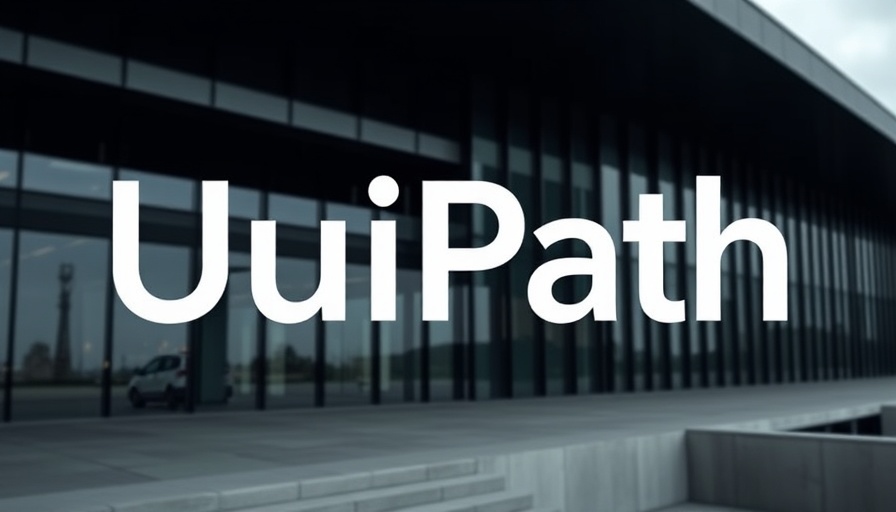
UiPath Strengthens Its Footprint with Peak Acquisition
In a significant move for the automation and artificial intelligence landscape, enterprise software giant UiPath has acquired Peak, a platform designed to enhance AI applications across various sectors. The announcement, made on March 13, marks a pivotal step in UiPath's strategy to deepen its vertical AI solutions, as articulated by Daniel Dines, the company's founder and CEO.
"With the acquisition of Peak, we are accelerating our mission to strengthen our vertical AI solutions strategy," Dines stated. He emphasized that integrating Peak’s purpose-built AI capabilities within UiPath’s existing platform will empower businesses by optimizing industry-specific processes and significantly enhancing customer value.
Peak's AI Capabilities: A Glimpse Into the Future
Peak's AI platform stands out by focusing on crucial business areas such as inventory optimization and dynamic pricing strategies. These tools allow businesses to develop effective AI workflows, helping them harness data effectively to optimize critical processes through APIs or web applications. This innovation represents a “new breed” of decision-making applications, enabling retailers and manufacturers alike to make informed choices regarding inventory management and pricing.
Expanding AI's Reach in Retail and Manufacturing
As industries evolve, UiPath aims to leverage Peak’s stronghold in sectors like retail and manufacturing, a combination that can facilitate rapid AI adoption. The acquisition positions UiPath to offer next-generation AI-driven applications characterized by high intelligence powered by large language models (LLMs). As Keith Kirkpatrick, research director at The Futurum Group, noted, the implications for retail could be profound, as automation begins to impact job functions traditionally performed by humans.
Challenges Ahead: The ROI Dilemma
Despite the promising outlook, the question remains: Are retailers prepared to invest in relatively untested technology? According to Kirkpatrick, achieving a demonstrable return on investment (ROI) will be critical to drive early adoption. Retailers are facing tight margins, which necessitates that any technological investment must clearly correlate with increased efficiency and revenue. Pricing strategies for agentic AI products will have to be closely aligned with concrete metrics that matter to these businesses.
Insights on AI's Evolving Role
The synergy between automation and AI not only signals a strategic industrial shift but also hints at the future landscape of enterprise operations. The automation of processes through AI has the potential to reshape how businesses operate, offering an array of possibilities from enhanced customer interactions to optimized supply chain mechanisms. Customer experiences are set to improve as companies like Amazon, Salesforce, and Google Cloud have demonstrated through their own AI deployments.
Revolutionizing Business Decision-Making
The merger of UiPath and Peak heralds an era of intelligent automation—where traditional business decision-making processes are redefined. This trend opens opportunities for enterprise-level solutions that can efficiently analyze vast datasets, making recommendations that would have previously required human oversight. This not only accelerates decision-making but also allows organizations to remain competitive in a rapidly evolving market.
Conclusion: Embracing the Agentic AI Evolution
The acquisition of Peak by UiPath represents more than just a strategic maneuver; it symbolizes a larger shift towards a future where agentic AI and automation are intertwined. As these technologies spread across industries, businesses must stay abreast of the latest developments to harness their full potential. Embracing these innovations could provide a significant edge in enhancing operational efficiencies and customer engagements.
For AI enthusiasts eager to keep pace with these advancements, understanding the nuances of agentic AI can be the key to unlocking new possibilities within their organizations. As such, remaining informed and adaptable will be crucial as the industry continues to evolve.
 Add Row
Add Row  Add
Add 




 Add Row
Add Row  Add
Add 

Write A Comment